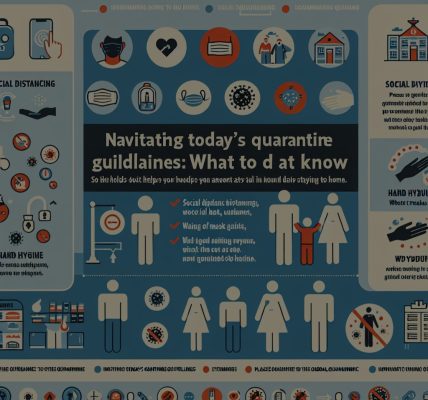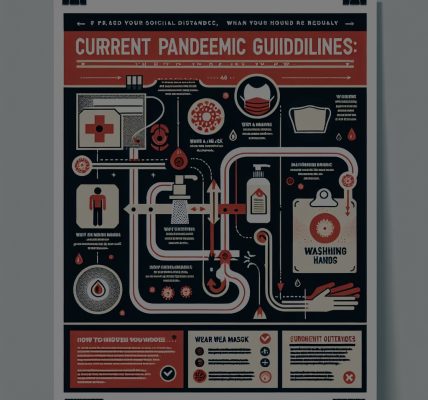The COVID-19 pandemic has prompted an unprecedented global response, leading to a rapid evolution in the understanding and management of the virus. As researchers, healthcare professionals, and pharmaceutical companies continue to explore effective treatments, the landscape of COVID-19 therapies is undergoing significant transformations. This comprehensive guide aims to provide an overview of the current treatments available, the role of antiviral medications and monoclonal antibodies, and the future of vaccine developments in combating this ongoing public health challenge.
The Evolving Landscape of COVID-19 Treatments Today
The treatment landscape for COVID-19 has witnessed remarkable advancements since the onset of the pandemic. Initially, clinical responses were largely symptomatic, focusing on managing severe cases with supportive care. However, the emergence of specific therapeutic agents has changed the approach to treating COVID-19, shifting from a reactive to a more proactive strategy that aims at minimizing disease severity and duration. As new variants continue to arise, the need for adaptable and effective treatments remains paramount.
Recent developments in treatment protocols have included a variety of options ranging from antivirals to corticosteroids. The World Health Organization has provided guidelines that reflect a growing body of evidence, indicating that certain treatments, when administered early, can significantly improve patient outcomes. Moreover, the integration of telemedicine and home monitoring has enabled healthcare providers to manage cases more effectively and deliver treatments to patients in a timely manner.
Despite the progress made, challenges remain. Variants of SARS-CoV-2 have shown the ability to evade some of the therapeutic strategies implemented earlier in the pandemic, requiring continuous research and adaptability in treatment protocols. As scientists work tirelessly to understand the virus’s mutations, the refinement and development of therapeutic agents remain a crucial focus in the ongoing battle against COVID-19.
Evaluating Antiviral Medications: What Works Best?
Antiviral medications have emerged as a cornerstone in the treatment of COVID-19, with several candidates demonstrating varying degrees of efficacy. One of the most noted antiviral agents is remdesivir, which has been authorized for emergency use in hospitalized patients. Clinical trials have shown that remdesivir can shorten recovery time, particularly when administered early in the course of the illness. As the clinical landscape evolves, ongoing research is essential to fully understand its limitations and optimal usage.
Another promising antiviral is molnupiravir, an oral medication designed to inhibit viral replication. Recent studies have indicated that molnupiravir may reduce the risk of hospitalization and death in high-risk patients when taken within the first few days of symptom onset. The convenience of an oral medication presents an appealing alternative for outpatient treatment, particularly as healthcare systems seek to alleviate burdens during surges in case numbers.
However, the effectiveness of these antivirals can vary based on several factors, including the timing of administration, patient demographics, and the presence of underlying health conditions. Researchers continue to explore combination therapies and the potential of newer antiviral agents to enhance treatment efficacy and mitigate viral resistance, ensuring that a comprehensive arsenal of treatments is available to combat COVID-19.
The Role of Monoclonal Antibodies in Patient Recovery
Monoclonal antibodies have gained significant attention as a therapeutic option for COVID-19, particularly for individuals at high risk of severe disease. These engineered antibodies target the SARS-CoV-2 virus, neutralizing it and preventing it from infecting healthy cells. Clinical trials have demonstrated that certain monoclonal antibody treatments can reduce the risk of hospitalization and death when administered early in the course of infection, making them a critical component in the treatment arsenal.
The administration of monoclonal antibodies is typically done through intravenous infusion, which allows for rapid delivery to patients who meet specific criteria. Given their targeted mechanism of action, these therapies can be especially beneficial in outpatient settings, allowing healthcare providers to manage high-risk patients effectively without the need for hospitalization. However, the challenge lies in the availability of these treatments and the need for careful patient selection to ensure optimal outcomes.
As research progresses, the landscape of monoclonal antibodies continues to evolve. New combinations and formulations are being developed to enhance efficacy, especially against emerging variants. Moreover, ongoing clinical trials aim to identify the best patient populations and timing for administration, ensuring that this promising treatment option remains effective and accessible in the fight against COVID-19.
Future Innovations: Vaccine Developments and Beyond
Vaccine development has been one of the most remarkable achievements in the response to COVID-19, with multiple vaccines receiving emergency use authorization in record time. The scientific community has rapidly advanced vaccine technology, employing platforms such as mRNA and viral vectors to elicit strong immune responses. As booster shots become an integral part of vaccination strategies, ongoing research is focused on optimizing dosing schedules and evaluating the need for adaptations to target specific variants.
In addition to traditional vaccines, researchers are exploring innovative vaccine candidates that can be administered intranasally or orally, potentially increasing acceptance and compliance among the public. These novel approaches aim to elicit mucosal immunity, which may provide additional protection against respiratory viruses like SARS-CoV-2. Furthermore, studies are underway to determine the efficacy of combination vaccines that target multiple strains of the virus or even other coronaviruses, paving the way for broader protection.
Looking ahead, the future of COVID-19 treatments will likely include a multifaceted approach, incorporating vaccines, antiviral therapies, and monoclonal antibodies in a comprehensive strategy. Collaboration across international borders, investment in research and development, and a commitment to equitable access will be essential in ensuring that these innovations are effectively deployed to protect public health and mitigate the impact of COVID-19 globally.
As the world continues to grapple with the COVID-19 pandemic, the evolution of treatment options is a testament to human ingenuity and resilience. From antiviral medications to the utilization of monoclonal antibodies and innovative vaccine developments, the landscape of COVID-19 treatment is continuously advancing. While challenges remain, the collective efforts of the scientific community, healthcare providers, and public health officials promise a future where effective treatments mitigate the impact of this virus. Ongoing research, adaptation to emerging threats, and a focus on global access will be crucial as we navigate the path forward in managing COVID-19 and ensuring the health and safety of populations around the world.
Understanding COVID-19 Duration: What the Latest Research RevealsRecognizing COVID-19: Key Symptoms to Watch ForExploring the Side Effects of COVID-19 Vaccines: What You Need to KnowRelevant LinkRelevant LinkRelevant Link




